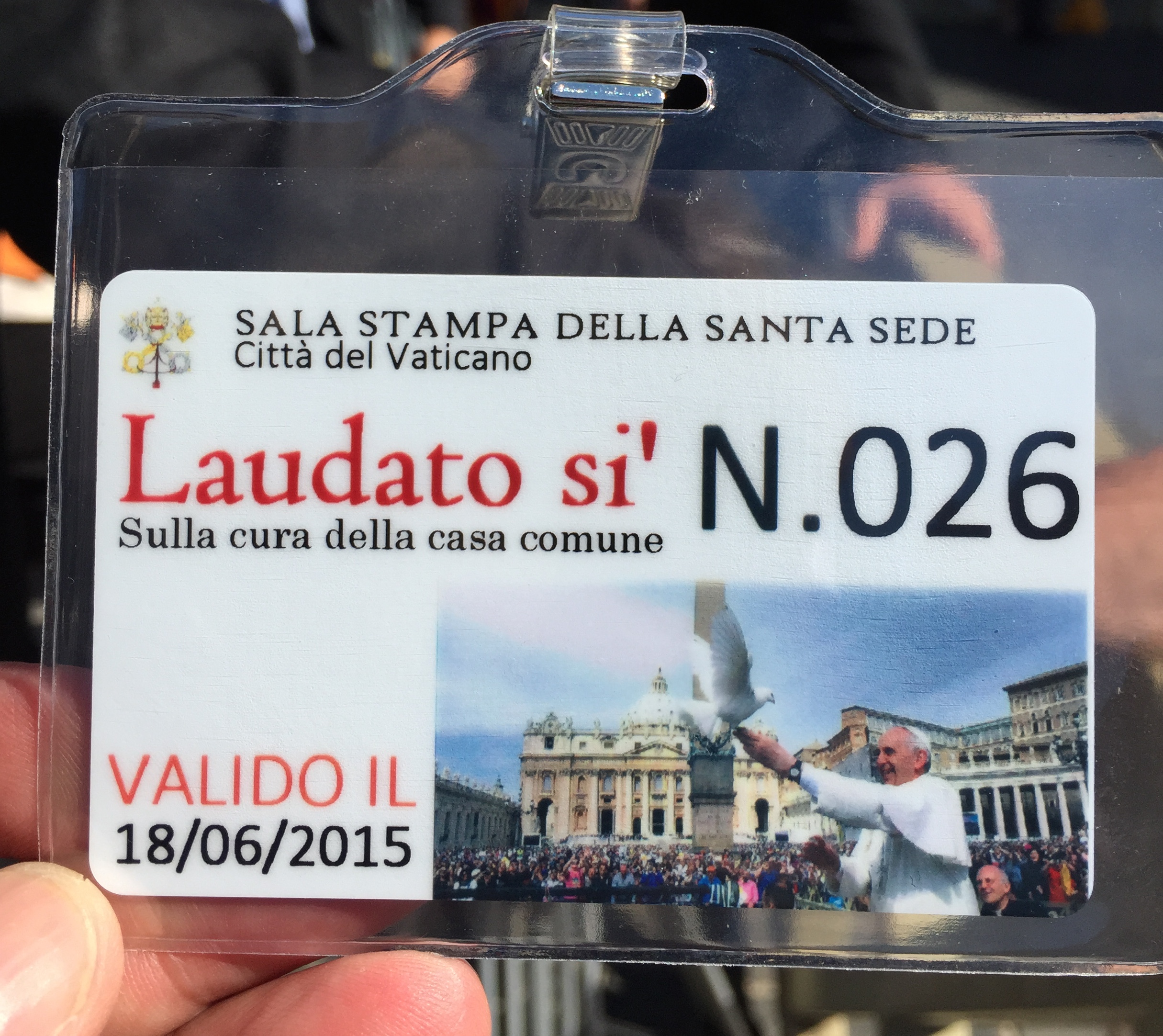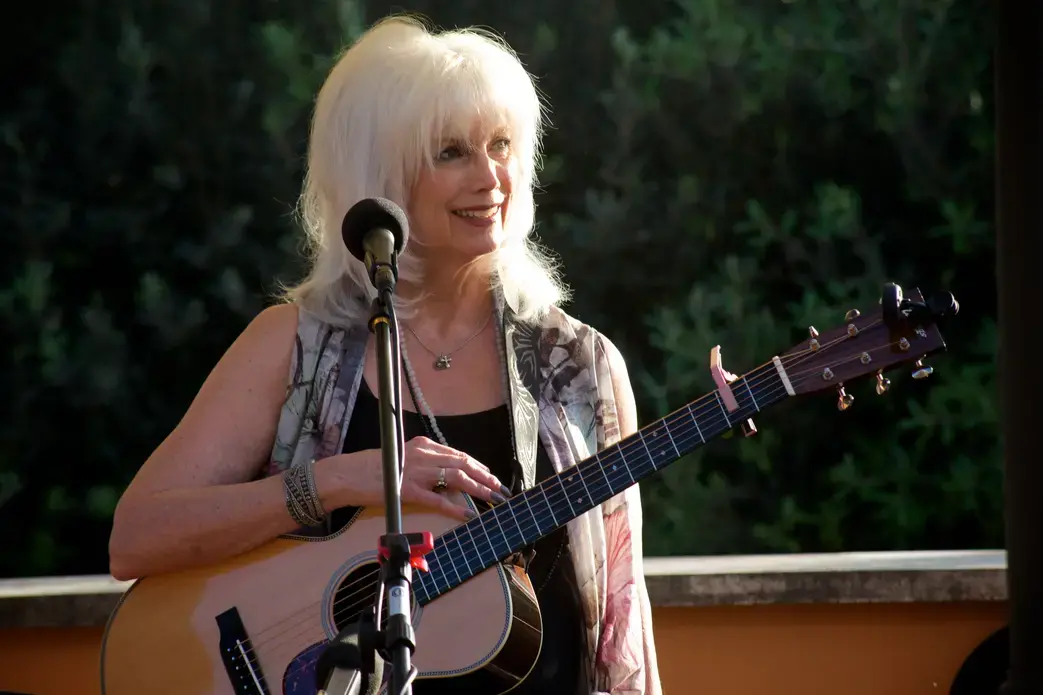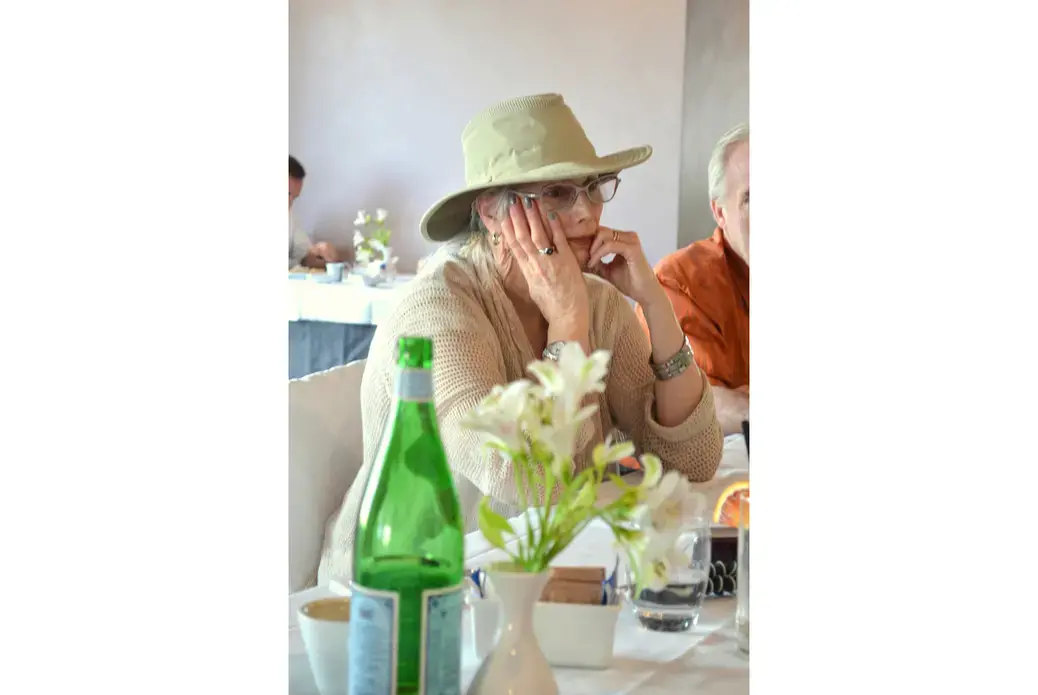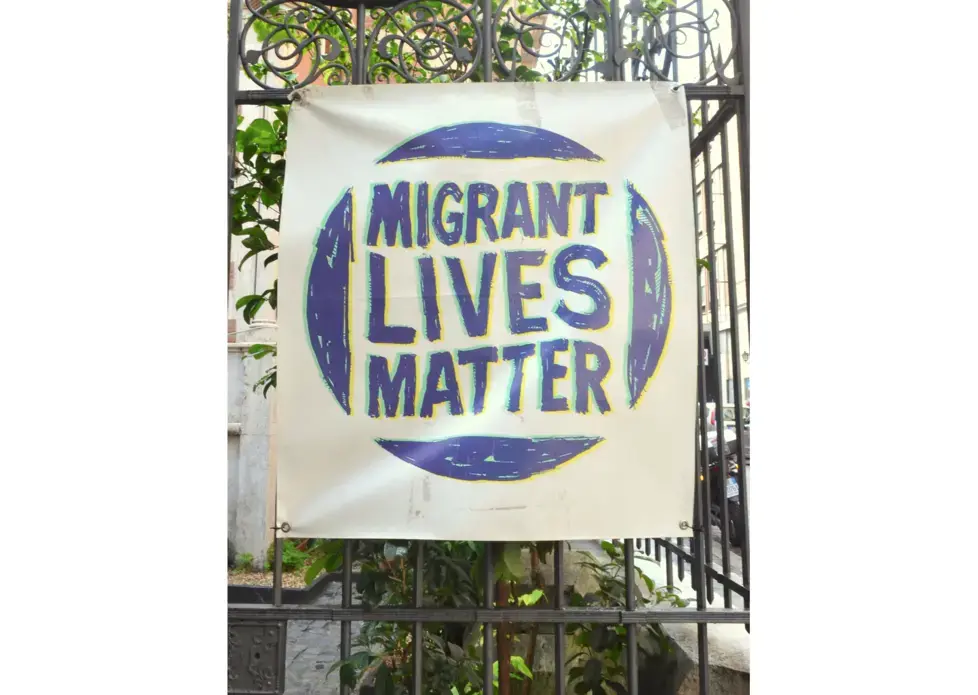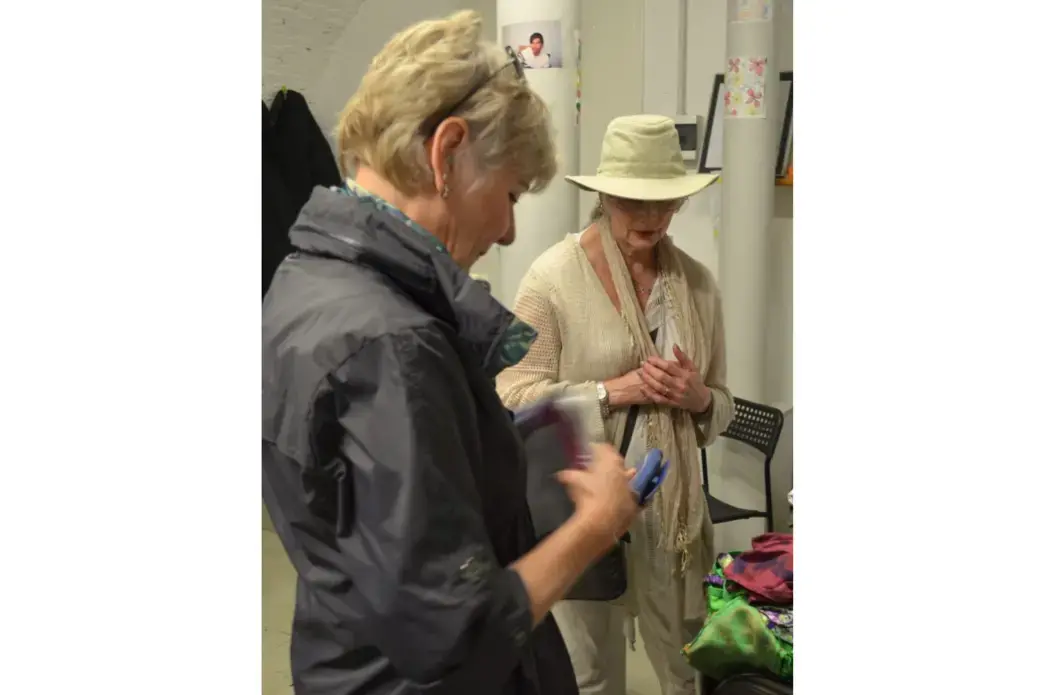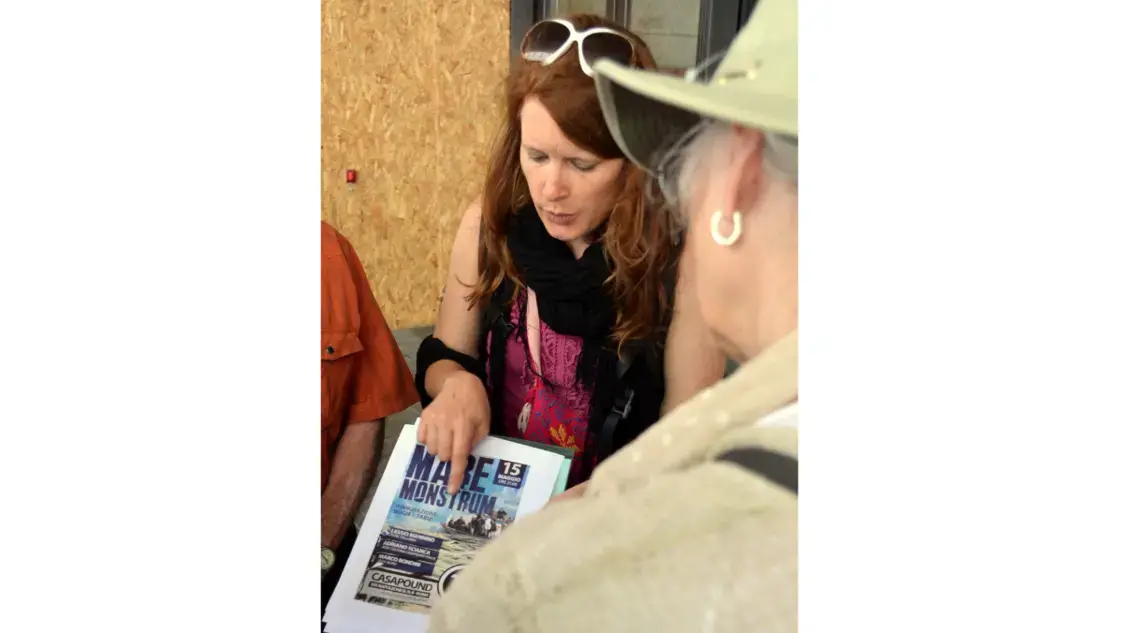ROME--As she immersed herself in yet another global humanitarian crisis — with the intent of lending a hand and her voice — iconic Americana singer-songwriter Emmylou Harris pointed to a root cause of the great suffering born of the refugee crisis bedeviling the European Union:
Global warming.
"I know it's an additional reason beyond all the wars and civil unrest," Harris told me in Rome on June 3rd in an exclusive interview with Mongabay. "I know we have so many deniers in the United States. But you can't deny the obvious."
Jack Brady, a consultant to the Jesuit Refugee Service, the organization that brought Harris to Rome, added context: "When you frame the refugee issue as a [national] security issue, it gets a lot more attention. And climate change is certainly causing insecurity in many nations. Bangladesh and island nations [which are barely above sea level] are already at risk."
A recent United Nations report makes the same link Harris made: "Droughts, floods and hazardous weather events often displace people and are sometimes caused or exacerbated by climate change. Slow onset climate impacts such as sea level rise and drought can force people from their homes over time. Secondary effects from climate change, such as conflict or resource scarcity, are not so easy to define yet can trigger mass migration."
Experts on the refugee crisis are connecting the dots in geopolitical hotspots around the globe, showing that while people are fleeing places such as Syria and North Africa primarily due to civil unrest, failed states, poverty and hunger, those problems are in turn seriously exacerbated by extended, devastating droughts and other extreme weather as the earth marks year-after-year of record-breaking heat.
In India, 330 million people are currently suffering water stress due to what is probably the worst drought that country has ever experienced. In Africa, 36 million people are on the verge of famine. Both crises are due to a record El Niño whose impacts have been escalated by climate change-driven drought, and both events could spur desperate mass migrations.
Such dislocations aren't only a problem for the developing world: the recent Fort McMurray, Canada wildfire dislocated 80,000 people. Though that fire hasn't been linked to climate change as yet, the event occurred as record heat and unusually dry conditions gripped the region. Scientists have forecast a dramatic increase in disruptive wildfires due to global warming.
Such pressures are on the march around the globe, producing swelling numbers of climate refugees.
A singer arrives — bearing hope, inspired by the pope
Emmylou Harris found herself in Rome this month as her way of answering the call by Pope Francis for people to step forward to ease the suffering caused by the global refugee crisis.
Last November, on the 35th anniversary of the Jesuit Refugee Service, the pope urged the organization to put "mercy in motion." So much is taken from those who flee their homelands for desperate reasons such as civil unrest and climate change, the Jesuit pope stressed, but one thing that cannot be taken away is an education.
In response, JRS launched its Global Education Initiative as part of the church's 2016 Year of Mercy. The program is gearing up to serve tens of thousands of refugees in the 45 countries where JRS has operations. The pontiff has issued a challenge: double the number of people served by JRS-sponsored educational projects to 220,000 refugees by 2020.
"Schools are a place of freedom, [keeping] alive the flame of hope," Pope Francis said last fall. "To give a child a seat at school is the finest gift you can give."
Pope Francis has also made a direct connection between climate change and its impact on the world's poorest in his unprecedented papal teaching document, Laudato Si, On Care for Our Common Home, released by the Vatican to global fanfare nearly a year ago. Pope Francis also played a leading role in advocating for the Paris Climate Change Agreement in December.
"Humanity is called to recognize the need for changes in lifestyle, production and consumption to combat this warming or at least the human causes which produce or aggravate it," the pope wrote in the papal encyclical.
On June 3, Emmylou Harris, a living legend of American music, a woman whose humanitarian credentials have deep roots, arrived in Rome for three days with her JRS hosts. She came to see the refugee crisis up close, and later flew to Ethiopia to visit one of the world's largest refugee camps.
"How can we see so much pain and suffering and think that it's normal?" asked Harris, a 13-time Grammy Award winner. "It can't be normal. We have to have hope. We have to believe. We have to do what we can."
Harris was reminded that despite its Catholic name and connection to Pope Francis, the mission of JRS is ecumenical and blind to religious creed. "It doesn't matter what faith tradition you come from," said Jill Drzewiecki, a JRS fundraiser, "there is no evangelization involved. In fact, well over half the people we serve are Muslim."
Experience with global causes
Harris, who is 69 and still radiates the enthusiasm and natural beauty of her youth, isn't new to humanitarian causes. In the late 1990s, she was invited by her longtime friend Gail Griffith, now director of the JRS Global Education Initiative, to get involved in the effort to ban landmines in Southeast Asia.
"I had just become aware of it through the movie and the book, [Michael Ondaatje's] The English Patient," Harris said. "That was something that with Americans, well, it was not on their radar. But it was affecting so many people long after the [Vietnam] War. Weapons were killing and maiming people. Destroying their lives. It was holding whole countries hostage. But nobody cared about it because the war was over."
Her friend Griffith remembered: "When I called Emmylou, I said, 'Do you want to work with me on the landmine issue?' She said, 'Yes. I'll do anything.'"
What followed were a series of small, intimate concerts in the US, Canada and Europe spread out over four years that raised awareness and millions of dollars for the cause. The concerts were acoustic, intimate affairs in medium-sized settings where musicians including Harris, Elvis Costello, Buddy Miller, John Prine and Steve Earle played songs that felt right for the moment, with an anti-landmine message offered when appropriate. The audiences loved it.
"I get the power of celebrity, and I understand music to be transformative," Gail Griffith said. "I also understand that you get people in seats not because of the cause but because of the musicians. Once you have them there, you can tell the story."
It worked. In fact, it became the backdrop for an even larger story. American Vietnam War veteran Bobby Muller, who spoke at many of the concerts, shared in a Nobel Peace Prize in 1997 for his work on the issue. Emmylou Harris was invited to sing at the award ceremony in Oslo the following year.
Shine a light, call for compassion
Harris and Griffith both embrace a deep belief in the potential unharnessed compassion of the developed world's most fortunate people. So they are planning to reprise the success of the landmine tour with a Harris-led concert tour for European refugees called Lampedusa, Shine a Light, Call for Compassion.
Eleven U.S. cities have been booked for October, starting in Boulder, Colorado, on October 6th and ending in Washington, D.C., three weeks later. Each will raise funds for JRS's refugee education initiative. A European tour is being considered for summer 2017. U2's Bono, a big supporter of humanitarian causes, has been asked to do a two-minute informational video that will open the shows.
On June 3rd in Rome, Harris began ascending the learning curve of the escalating refugee crisis in Europe: "I am just now learning the details and the intricacies of it," Harris told me at breakfast. "The people at JRS, they are dealing with the situation. For me… I'm just going to show up and do what I do. Hopefully, it will make a difference. "
The time is right. Two weeks ago, 700 refugees died in overloaded boats in the Mediterranean Sea. On June 2nd, another 85 bodies washed ashore in Libya. Thousands more refugees are expected to stream into Greece and Italy this summer. Some one million refugees and migrants are already in 28 European Union countries.
As big as these numbers are, they could represent merely the first trickle in a flood of humanity. A study by Jeffrey D. Sachs highlighted in Scientific American concludes that: "Human-induced climate and hydrological change is likely to make many parts of the world uninhabitable, or at least uneconomic. Over the course of a few decades, if not sooner, hundreds of millions of people may be compelled to relocate because of environmental pressures."
A 2016 study finds that climate change could make portions of North Africa and the Middle East uninhabitable by the end of the century due to unendurable high temperatures — 500 million people now live in the region.
Faith in the goodness of people
Harris listened, mouth agape, hands on her face, as JRS officials briefed her on refugee numbers and on outmoded UN regulations that make an effective response difficult. She visited the Joel Nafuma Refugee Center near Piazza della Repubblica in the heart of Rome and spoke with desperate refugees who had fled their homes in Africa and the Middle East. She heard the horrific story of one 25-year-old, multilingual orphan and refugee from Mali, trapped in legal limbo in Rome for four years.
Through it all, Harris held onto hope. She believes music can bring change, can help in some small way to fulfill the pope's highest aspirations for alleviating refugee suffering.
"I have faith in the goodness of people. Maybe because I've had such a blessed life," Harris told me. "I feel lucky in so many ways. And especially, if you are a musician, an artist, and you make your living that way, and the best possible way, with so much joy, then you want to somehow give back."
"I find that [quality] in all artists, in all musicians who I know," she added. "They say, 'Tell me what I can do.' Obviously, I can't do the hard, heavy lifting that the people we're meeting [here in Rome] are doing. We don't have their experience. But we will put together these shows. We will raise money and awareness, and we will try to be a missing piece."
Back at the church that houses the refugee center, a group of us enjoyed a lunch prepared by an Afghan refugee whose entire family had been murdered before he fled for Rome.
Emmylou Harris absorbed much in just a few hours. To others, it might've been too much, too daunting. But not to her.
"The desire to do something is a powerful force," she told us. "I just believe the will is out there somewhere. It's all so overwhelming. But it's not impossible."


